-
11 Common Dental Problems
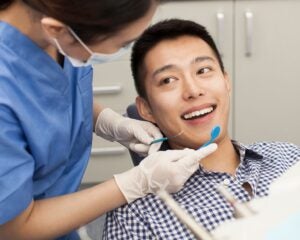
Are you self-conscious about your smile? Do you want to prevent oral health problems before they start? Learning about common tooth and gum issues goes a long way toward keeping your smile healthy and beautiful. Here are 11 of the most prevalent dental problems you should know about.
- Cavities: When plaque builds up, it slowly destroys the hard outer layer of your teeth, known as enamel. Soon, a hole forms. The decay continues to spread until you get a filling.
- Gum disease: Red, tender gums that bleed easily when you floss are a sign of gum disease. The early stage, known as gingivitis, is easy to reverse, so act quickly if you suspect a problem.
- Staining and discoloration: Dark-colored foods, tea and coffee, tobacco, certain medications, and traumatic injury can stain or discolor your teeth. Routine cleanings, whitening, and veneers are all options for restoring a bright, white smile.
- Sensitivity: Teeth can become sensitive to hot and cold temperatures because of worn enamel, exposed roots, fractures, and more. Brushing with desensitizing toothpaste may help.
- Crooked teeth: Around 75 percent of the population has either worn braces or could benefit from straightening their teeth. Invisalign is a convenient, nearly invisible way to achieve the smile you’ve always wanted.
- Gaps between the teeth: If two or more of your teeth don’t quite touch, you can close the gap with Invisalign or other orthodontic procedures. You can also instantly correct the issue with cosmetic solutions like bonding or veneers.
- Toothaches: If you experience a sudden pain in one or more teeth, set an appointment with an emergency dentist right away. In the meantime, rinse with warm salt water and take over-the-counter pain relievers.
- Chipping and cracking: Enamel is the hardest substance in the human body, but it can still chip and crack under traumatic circumstances. Your dentist may recommend a crown, bonding, or root canal followed by a crown or veneer.
- Impaction: Impacted teeth are those that fail to erupt through the gums. This is common with wisdom teeth. Depending on your situation, you may need oral surgery.
- Nighttime tooth grinding: Known as bruxism, this condition can cause headaches, jaw soreness, cracked teeth, or receding gums. Ask your dentist to fit you with a custom mouthguard to protect your smile.
- Bad breath: In about 85 percent of people with chronic bad breath (also called halitosis), an underlying dental condition is to blame. Keep your mouth clean and fresh by brushing, flossing, rinsing with therapeutic mouthwash, and visiting the dentist regularly.
These common dental problems are no fun, but fortunately, you can prevent most of them with good at-home oral care and routine dentist appointments. For personalized tips to keep your smile healthy and bright, or to schedule your next dental exam and cleaning, please contact Park 56 Dental at (212) 826-2322. We are the best dentist in NYC, offering a spa-like experience that makes going to the dentist a pleasure!
-
How to Care for Your Invisalign Aligners
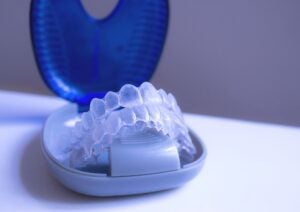
One of the most significant benefits of Invisalign is that you can remove it to eat and drink. Unlike metal braces, this means there are no dietary restrictions, so you can eat whatever you want while straightening your smile with nearly invisible plastic aligners! Still, keeping the aligners clean is an important part of your treatment plan. With proper care, you’ll keep your Invisalign clear, odorless, and free of bacteria buildup. Here’s what you need to know.
Rinse Your Aligners Whenever You Take Them Out
Rinsing your aligners helps remove saliva, bacteria, and plaque before putting them in their storage case. This is an important step even if you’re not at home, so be sure to locate a drinking foundation or bathroom sink before removing your Invisalign.
Remember, you should take out your aligners to eat and drink anything other than water. Otherwise, the clear plastic is liable to stain. Still, you should wear your aligners for at least 22 hours a day to ensure your treatment stays on schedule, so refrain from snacking too often.
Clean Your Invisalign Morning and Night
When brushing your teeth before bed and after waking up each morning, clean your Invisalign as well. This involves brushing the aligners with a soft toothbrush (different from the one you use on your teeth) with clear, anti-bacterial liquid soap. It may seem counterintuitive, but you should not use toothpaste to brush Invisalign aligners. Doing so could cloud the plastic and make it appear more visible in your mouth.
Invisalign care also involves soaking the aligners in a cup of manufacturer-provided cleaning crystals dissolved in lukewarm water. Soak for 15 minutes once a day to keep your aligners sanitized and odor-free.
Brush After Eating
Proper Invisalign care isn’t just about cleaning the aligners—it’s also about having good oral hygiene. In addition to brushing and flossing each morning and night, Invisalign wearers should make a habit of brushing after each meal or snack before putting the aligners back in. This prevents trapping food particles against your teeth, which could lead to cavities and staining. If brushing isn’t an option, rinse your mouth out thoroughly with water.
Store Your Invisalign Aligners in a Dedicated Case
Whenever you remove your aligners, put them in their case immediately. Otherwise, you risk damaging, losing, or accidentally throwing away your Invisalign. This tip applies even when you’re out and about, so it’s helpful to have two cases—one for at home and one for on-the-go.
Remember to keep your Invisalign case clean as well. Once a week, brush the case with the same toothbrush and soap you use with your aligners. Let the case air dry before closing it again.
If you have more questions about caring for Invisalign, or you’re ready to straighten your smile using this cutting-edge technology, please contact Park 56 Dental at (212) 826-2322. We offer a complimentary consultation with our knowledgeable dentist so you can find the answers you seek before moving forward with your Invisalign treatment.
-
Why it’s Important to Have Your Teeth Professionally Cleaned Regularly
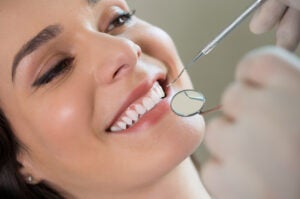
Routine dentist visits include an oral exam and professional teeth cleaning. Performed by a licensed and registered dental hygienist, cleanings remove stains and buildup to brighten and protect your smile.
Unfortunately, almost one-third of Americans forgo routine teeth cleanings, which the American Dental Association recommends getting at least once every six months. If you think brushing and flossing are just as good as professional cleanings, think again! Here’s what can happen if you skip your routine dentist visits.
- Increased risk of staining and cavities: Even if you’re diligent about at-home oral care, cavities can still develop. You need help clearing away tooth-staining, cavity-causing plaque and tartar that are nearly impossible to remove without professional tools.
- Greater chance of gum disease: Plaque and tartar can also build up along the gum line, irritating this soft tissue and causing periodontal pockets to form. If you never have your teeth professionally cleaned, bacteria, food particles, and plaque could collect in these pockets, further irritating your already-sensitive gums.
- Untreated bad breath: Hard-to-reach bacterial deposits may cause bad breath. You can temporarily mask the unpleasant odor with mints, gum, or mouthwash, but the only way to tackle this problem head-on is to have your teeth professionally cleaned.
- Undiagnosed oral health problems: Some dental emergencies occur quickly and noticeably, including traumatic injuries, loose crowns, and fractured teeth. Others develop more slowly, such as cavities, abscesses, and oral cancer. With routine dental exams, you can receive an early diagnosis and begin treatment for any developing health problems.
- Complications during pregnancy: It’s more important than ever to see a dentist when you’re pregnant. Because of unprecedented hormone fluctuations, you have an even higher risk of cavities, gum disease, tooth erosion, and other problems if you skip your cleanings as an expecting mother.
- Risks to your overall health: Neglecting routine oral care can put other aspects of your health at risk. For instance, the oral bacteria associated with gum disease are linked to an increased risk of cardiovascular disease, respiratory infections, rheumatoid arthritis, and other conditions. Protect your overall well-being by keeping your teeth and gums healthy with professional cleanings.
- Potential tooth loss: If allowed to progress, gum disease can eventually weaken the bone structure that holds your teeth in place. In severe cases, your teeth may even start to fall out. Don’t let it come to this! Get your teeth professionally cleaned twice a year to maintain a healthy, beautiful smile.
Even if it’s been years since you’ve been to the dentist, it’s never too late to go in for a dental cleaning! The sooner you commit to taking better care of your smile, the better chance you have of avoiding the complications outlined above.
Are you looking for the best dentist in NYC? Come to Park 56 Dental! Our spa-like office, caring staff, and experienced dental professionals make going to the dentist a pleasure. Contact us online or call (212) 826-2322 to schedule your first visit with us today.
-
How to Stop Drinking Soda and Other Sugary Drinks

Soda and other sugar-sweetened beverages are highly popular in the United States. According to the CDC, about half of all adults and 63 percent of teens consume at least one sugary drink every day. Despite its popularity, most people know that drinking soda is unhealthy. The empty calories and sugar in soda are linked to obesity, diabetes, weight gain, and various chronic conditions. Soda also hurts your teeth. Sugar and acid (found in both regular and diet soda) erode protective tooth enamel and lead to cavities.
If you have a goal to stop drinking soda, you may be unsure how to overcome your cravings. Follow these tips to lower your sugary drink intake and benefit your oral and overall health.
- Drink more water: Sometimes, you may crave soda if you’re simply thirsty. Drink a tall glass of water and see if the craving subsides. Water is exactly what your body needs to stay hydrated without any added sugar, acidity, calories, or artificial colors and sweeteners.
- Stop buying soda: Make it harder to give in to your cravings by never keeping soda in the house. This may require you to get the whole family on board with your goal to stop drinking sugary drinks.
- Replace soda with healthy alternatives: Curb your soda cravings by drinking flavored sparkling water, kombucha, green tea, or coconut water. You may find these satisfy your craving better than plain water because they more closely resemble soda. However, don’t replace soda with fruit juice, which can have a surprising amount of added sugar and empty calories.
- Curb your cravings: Take your mind off soda by chewing gum or snacking on a sweet, healthy treat, such as apple slices, berries, grapes, yogurt, or a smoothie.
- Manage your stress levels: Stress can induce cravings for soda and other unhealthy food. As a result, stressed individuals tend to consume more calories than non-stressed people. Healthy ways to manage stress include physical exercise, yoga, meditation, aromatherapy, journaling, and counseling.
- Create a support system: If you’re serious about not drinking soda, don’t keep it a secret. Tell your friends and family so they can help you stay accountable. Sharing your goal also gives you people to talk to when a craving strikes.
- Drink in moderation: If you decide to have soda occasionally, limit the damage by having no more than one drink per day. Also, avoid drinking soda close to bedtime, use a straw, and rinse your mouth with water afterward. Wait to brush for at least 30 minutes so your acid-attacked teeth have time to recover before you subject them to the friction of your toothbrush.
Whether you cut out soda entirely or continue to drink it in moderation, regular dental cleanings are vital for maintaining a healthy smile. Contact Park 56 Dental at (212) 826-2322 to schedule your next visit to our NYC dentist office. We provide services in a spa-like environment to ensure your complete comfort and satisfaction.
-
Smile Restoration Services
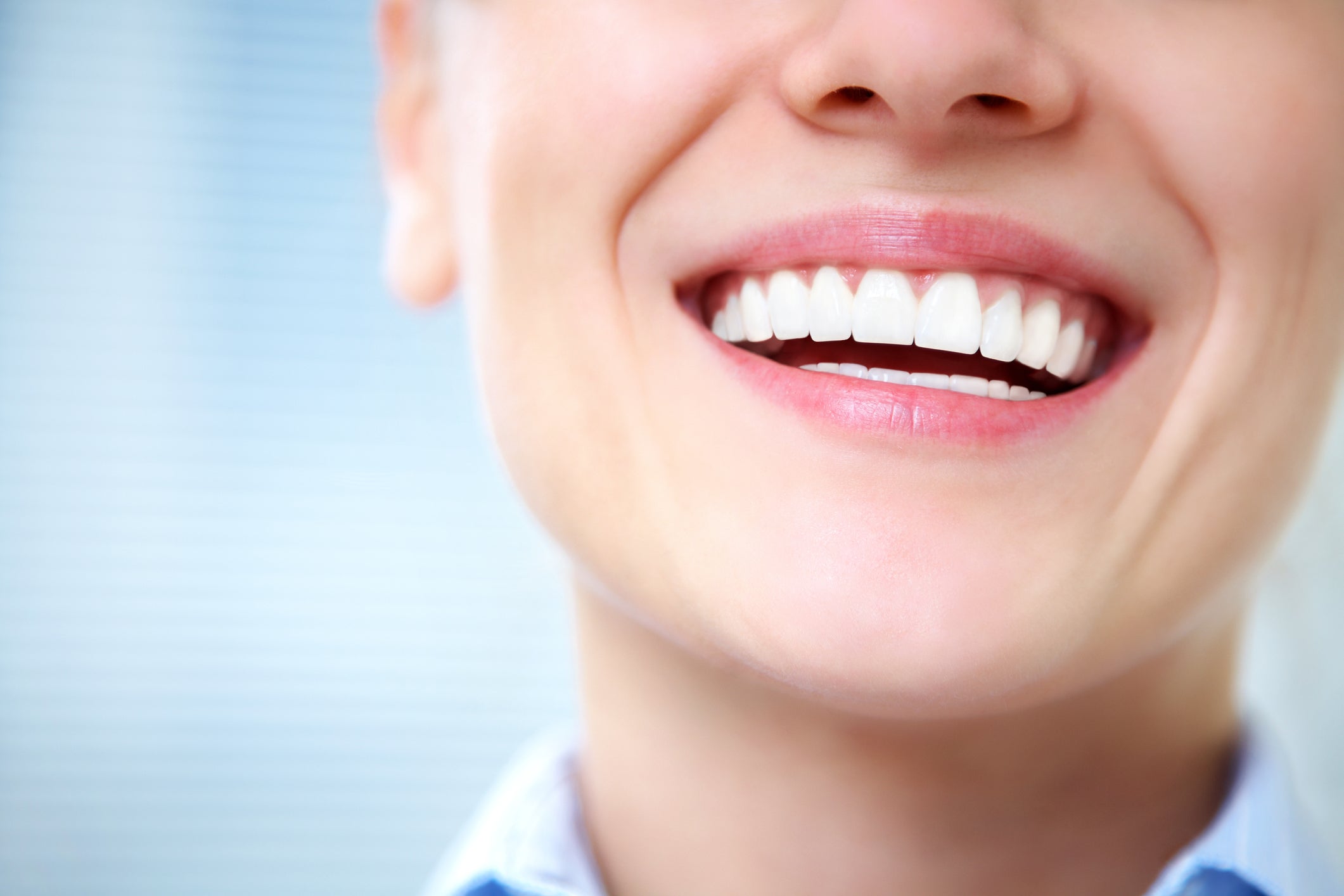
At Park 56 Dental, nothing is more important than our patients’ oral health. If you have missing, discolored, decayed, or crooked teeth, we can help! Learn about our smile restoration services to find a solution that works for you.
Dental Implants
Missing teeth are among the most noticeable oral health problems. When decay or a traumatic injury results in tooth loss, dental implants are often the best restorative option available. An implant features a screw-like titanium body, which takes the place of the missing root. Then, a tooth-colored crown is cemented on top of the implant. The result is a functional, natural-looking replacement tooth that can last decades with proper care.
Dental Bridges
As another option for treating tooth loss, dental bridges “bridge the gap” between two teeth without implanting anything into the gums. Bridges can be placed more quickly and cost less than implants, but they require healthy surrounding teeth to prevent the gums and jawbone from degrading. We can help you decide if implants or bridges are best for your tooth loss scenario.
Dental Veneers
Do you have chipped, misshapen, or stained teeth? With veneers, you no longer have to hide your smile! Veneers are thin, tooth-colored shells that adhere to the front of your natural teeth. They can be whatever shape, size, and color you want to achieve the desired aesthetic effect. Thanks to their durable porcelain construction, you can expect veneers to last many years with proper care.
Root Canals
If one of your teeth has a deep cavity or diseased nerve, it may be possible to save the tooth with a root canal treatment. While root canals have a reputation for being painful, the intent is to remove pain and swelling. Our dentists can complete this procedure in one to three office visits. By the end of your treatment, you’ll be ready to show off a healthy, pain-free smile!
Invisalign
Have you always wanted straighter teeth but balked at traditional metal braces? Invisalign is the answer! This treatment uses a series of clear, plastic aligners to straighten your smile over an average of nine to 15 months. Invisalign is comfortable, removable, and BPA-free for your safety. Best of all, the aligners are virtually invisible, so no one will even know you’re wearing them!
Zoom! Whitening
Many at-home products claim to whiten your teeth, but only in-office Zoom! whitening can give you the results you want in a single, one-hour visit. Remove years of staining and brighten your smile by an average of eight shades with this safe, simple, and relaxing process. Our dentist will ensure your teeth are healthy and eligible for whitening before treatment begins.
Are you ready to fall in love with your smile like never before? The dentists at Park 56 Dental have the skills and experience needed to perform restoration services for our New York City patients. If you are dissatisfied with your smile for any reason, please contact us at (212) 826-2322 and schedule a consultation today!
-
Questions to Ask During Your Next Dentist Visit
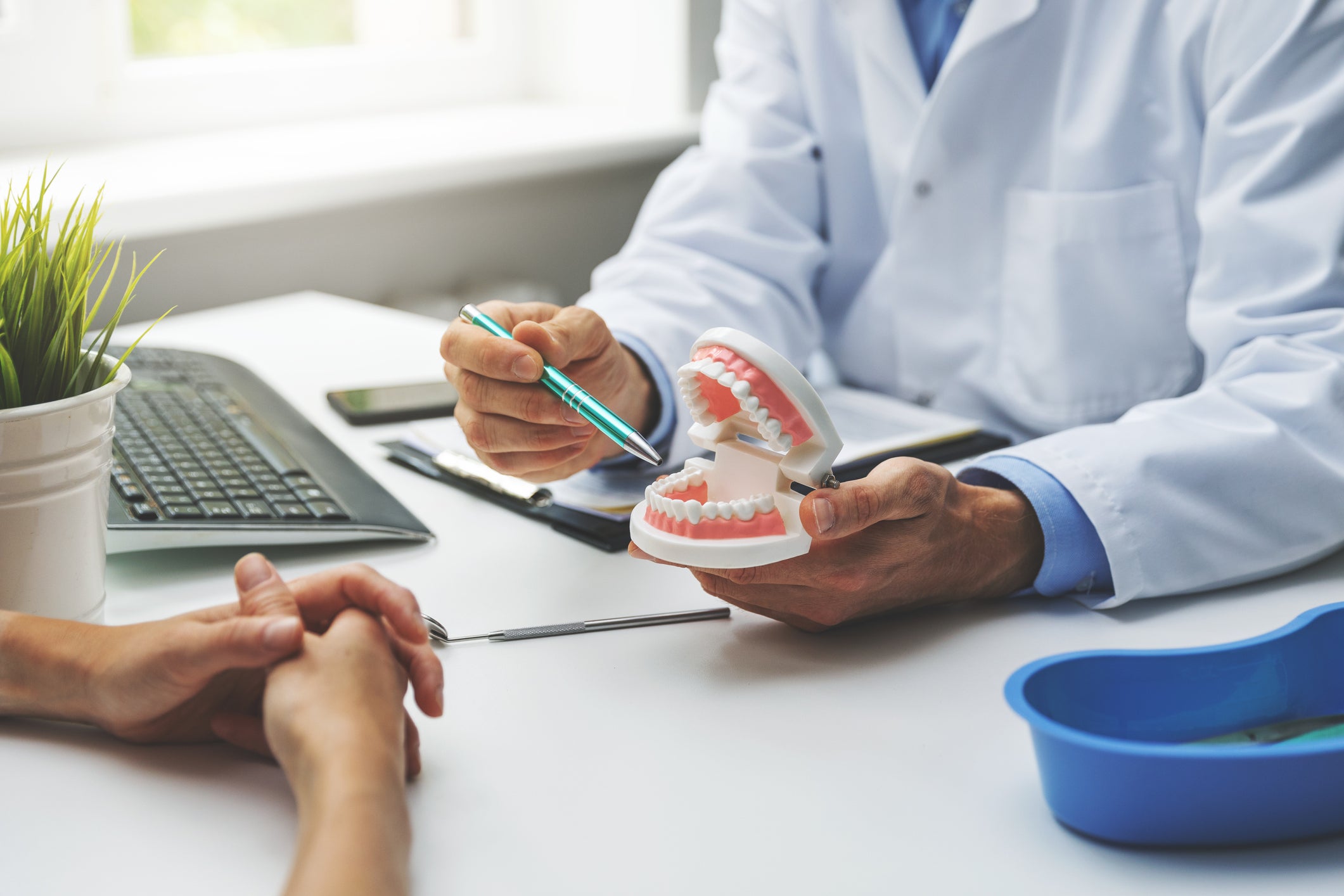
Dentists advise most patients to schedule an oral exam and cleaning twice a year. Each visit is your chance to learn more about your oral health and the treatments available to keep your smile healthy. Write down anything you want to ask during your next dentist visit. You may choose to ask some of the questions we’ve compiled here.
- Why do my teeth hurt? If you are experiencing toothaches or sensitivity, tell your dentist right away. Potential causes include tooth decay, cracked teeth, exposed roots, whitening products, orthodontic work, and fillings. Such problems aren’t always apparent during an exam, and your dentist can only recommend treatment if you speak up.
- Is whitening treatment right for me? Tooth whitening treats surface stains caused by coffee, tea, and other dark-colored foods and drinks. It does not address intrinsic discoloration, however. Your dentist can help you determine if whitening or another procedure, such as bonding or veneers, is most appropriate.
- How can I strengthen my teeth? If you’re worried about weak enamel or cavities, your dentist may recommend fluoride treatment. You can also improve the strength, appearance, and functionality of your smile with cosmetic bridges, fillings, or implants.
- What toothbrush, toothpaste, and floss should I use? With so many dental products out there, it never hurts to ask your dentist which ones they recommend. If you have weak enamel, sensitive teeth, gum recession, or other oral health concerns, you can receive advice specific to your situation.
- Should I use mouthwash? Brushing and flossing get plenty of attention, but your dentist may also recommend a therapeutic or prescription mouthwash to treat gingivitis, tooth sensitivity, inflammation, excessive gum bleeding, chronic staining, or other oral health concerns.
- Do you recommend wearing a mouthguard? Many people grind their teeth at night without knowing it. An observant dentist should recognize the signs of tooth grinding, also known as bruxism, even if you don’t ask about it. These signs may include receding gums, damaged enamel, popping jaw, and complaints of morning headaches. Your dentist can fit you with a custom mouthguard to ease your symptoms and protect your oral health.
- Could I be at risk for oral cancer? Tobacco use, heavy drinking, excessive sun exposure to the lips, and a weak immune system all increase your oral cancer risk. Early detection is critical for successful treatment, so request screenings often, even if you don’t think you have cancer.
- Why do I need dental X-rays? Most dentists recommend bitewing X-rays once a year and a full-mouth series every four to five years. X-rays reveal what’s happening beneath the surface, which is vital for diagnosing problems and pursuing the proper treatment.
Looking for personalized answers to these and other oral health questions? Please contact Park 56 Dental at (212) 826-2322 and schedule an appointment at our NYC dentist office today! Our knowledgeable team can address all of your concerns and help you make the best choices for your oral health.
-
New Year’s Resolutions for Better Oral Health
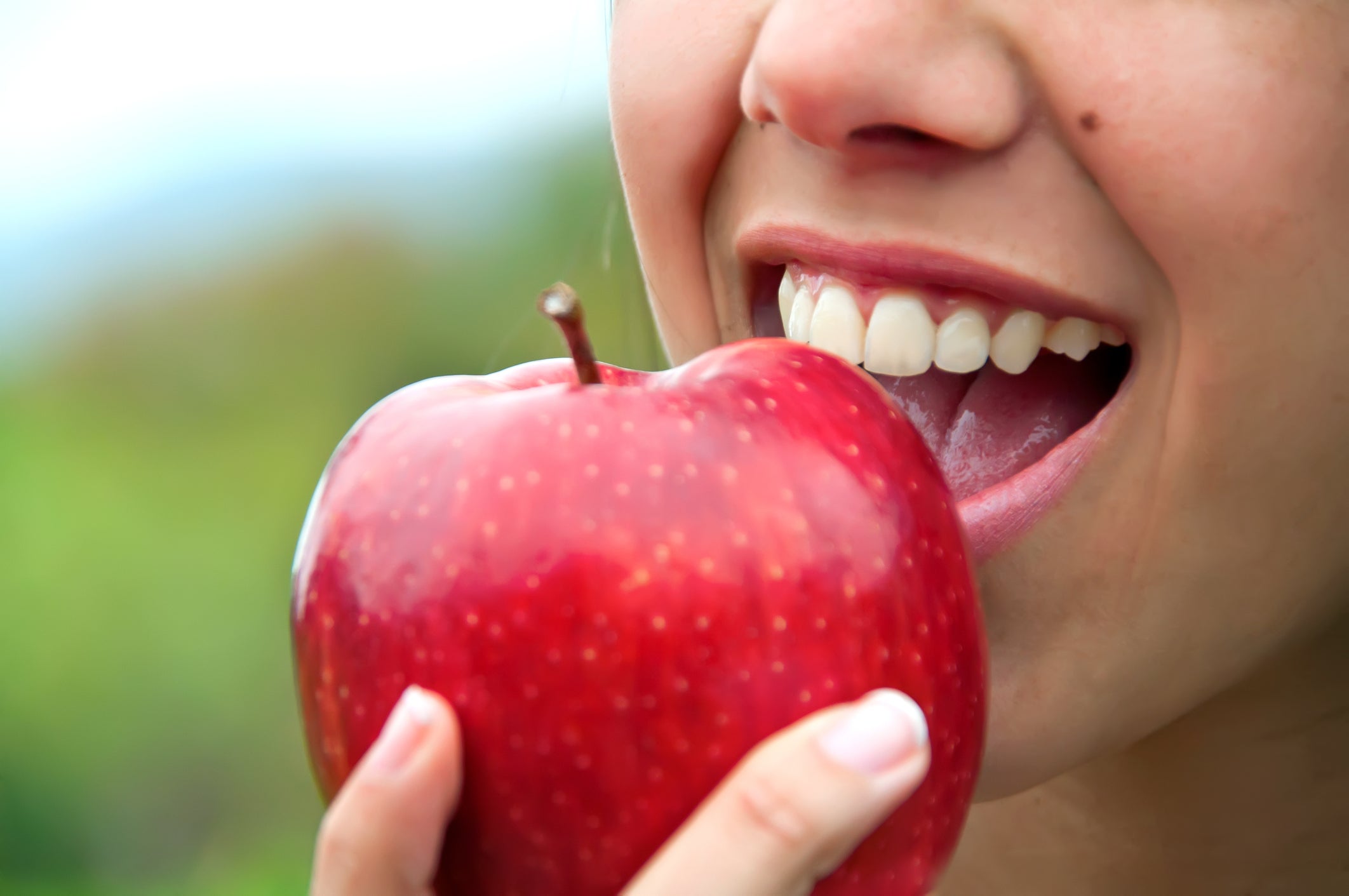
Welcome to the new year! Have you set any resolutions yet? Consider adding oral health to the list of things you want to improve in 2021. Here are the strategies that will help you achieve a brighter, healthier smile in the coming year.
Load Up on Fruits and Vegetables
Eating well is important for healthy teeth and gums. The vitamins, minerals, and antioxidants found in fruits and vegetables can help protect you against gum disease. Crisp, crunchy options such as apples, carrots, and celery also scrub your teeth to help fight plaque. Besides produce, other mouth-friendly foods include dairy, nuts, legumes, and tea.
Eat Less Sugar
While you’re loading your plate with fruits and vegetables, remember to lessen your sugar intake as well. This simple resolution can improve your health in many ways, including dramatically reducing the risk of tooth decay. The change can be simple—reach for sugar-free seltzer water instead of soda, and chew sugar-free gum instead of munching on candy.
Quit Smoking
Smoking is incredibly harmful to your oral health, increasing the risk of cavities, tooth discoloration, gum recession, gum disease, and oral cancer. Smokers are also twice as likely as non-smokers to experience tooth loss. It isn’t just smoking—tobacco use of any kind can be detrimental.
Brush Twice a Day
It’s easy to skip brushing, promising yourself that you’ll brush “extra well” the next day. However, going to bed with unbrushed teeth invites bacteria to eat away at your enamel and cause cavities to develop. It’s equally important to brush your teeth in the morning—not just to freshen your breath, but to eliminate acid and bacteria that build up overnight. Otherwise, a hard, tooth-staining substance called tartar is likely to form.
Commit to Flossing
Arguably more important than brushing, flossing removes plaque and debris from between your teeth and along the gum line that your toothbrush leaves behind. It also stimulates the gums to help prevent recession and gingivitis. If flossing once a day isn’t already a habit, implement it into your new oral health routine.
Visit the Dentist at Least Twice a Year
While all of these at-home tips help keep your smile bright between dentist visits, they can’t replace professional cleanings and dental exams. After all, only a dentist can remove plaque, scrape away tartar, and treat developing problems early before they threaten your long-term oral health.
Whiten Your Teeth
There’s no better time than the new year to brighten your smile! In-office Zoom! whitening lightens your teeth by an average of eight shades in a single, one-hour visit. The treatment is a safe, simple, and relaxing way to help you look and feel your best in 2021.
Park 56 Dental is proud to offer preventative, restorative, and cosmetic dentistry to improve the health and appearance of your smile. Visit our spa-like, patient-centered dentist office to receive the personalized, quality care you deserve. Contact us online or call (212) 826-2322 today to learn why we’ve been voted Top Dentist in NYC!
-
How pH Affects Your Teeth
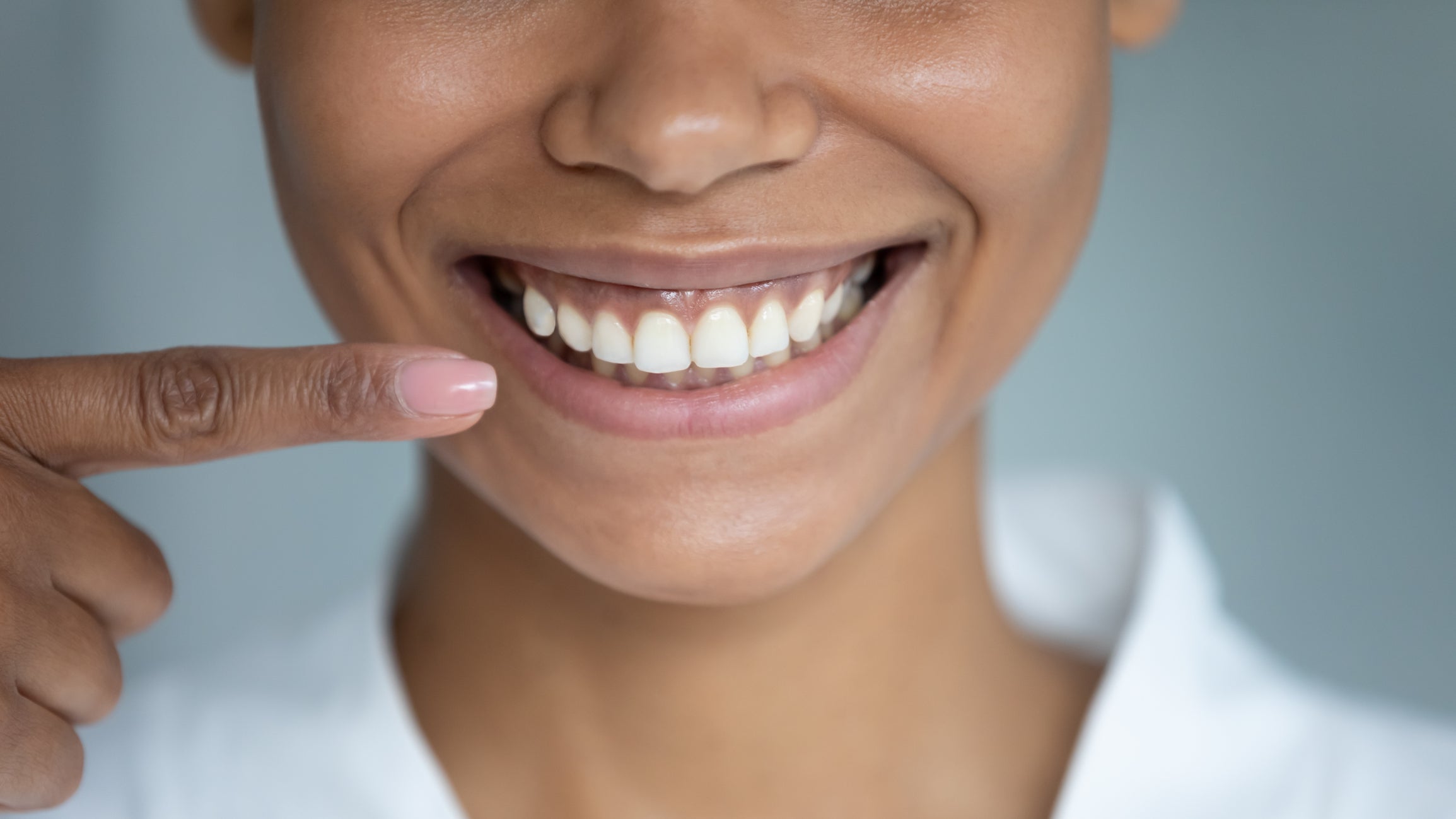
Your body’s pH level can affect your overall health. Lower (more acidic) pH levels increase the risk of type 2 diabetes, heart disease, and obesity. Conversely, higher (more alkaline) pH is linked to improved memory, reduced pain, and lower risk of stroke and hypertension.
Did you know that pH levels also affect your teeth? On the pH scale, anything above 7.0 is alkaline, while anything below 7.0 is acidic. The goal is to keep your mouth at 5.6 or higher. Consider the connection between pH and oral health, as well as how to balance pH levels in your mouth.
Oral Health Risks of an Acidic Mouth
Acidic foods and beverages lower your pH, which can negatively affect your oral health. Here’s what can happen if your mouth experiences long periods of low pH:
- Mineral loss: Acidic snacks deplete your teeth of minerals, leaving them more vulnerable to damage from harmful bacteria. Once the ideal pH of 5.6 is restored, minerals return to your teeth.
- Enamel erosion: Acid wears down enamel, the hard outer coating of your teeth that protects the more sensitive layers underneath. Enamel doesn’t grow back, so it’s vital to care for your teeth before this occurs.
- Tooth decay: Temporary mineral loss and permanent enamel erosion leave your teeth vulnerable to destructive bacteria. The resulting tooth decay and cavities may require restorative dentistry—including fillings, crowns, or root canals—to avoid tooth loss.
- Bad breath: If you struggle with bad breath, this could be a sign of unbalanced pH levels in the mouth.
- Sensitivity to hot and cold: Enamel loss can make your teeth more temperature-sensitive. Since acidity can cause enamel erosion, balancing your pH levels may help treat sensitive teeth.
How to Increase the Alkalinity of Your Mouth
If you want to stop bad bacteria from wreaking havoc in your mouth, create an environment that prevents mineral depletion and supports healthy enamel. Here are some ways to maintain a balanced pH level in your mouth:
- Adopt a more alkaline diet: This consists of eating more vegetables, beans, and seeds while limiting your intake of white bread, sweeteners, condiments, soda, fruit juice, sports drinks, alcohol, tea, and coffee.
- Limit snacks: Every time you eat or drink, your pH level fluctuates. Avoid consuming anything besides water between meals to help the pH remain stable.
- Chew sugar-free gum after meals: Gum chewing stimulates saliva flow, the key to neutralizing acids and protecting your oral health.
- Maintain good dental hygiene: Brush your teeth for two minutes twice a day and floss once a day. Remember to wait at least 30 minutes after eating to brush so your saliva has time to replenish tooth minerals. Schedule a professional dental cleaning twice a year as well.
If you have concerns about managing your pH levels, or it’s been more than six months since your last dental cleaning, contact Park 56 Dental at (212) 826-2322 to schedule a visit to our NYC dentist office.
-
Dental Care During Pregnancy
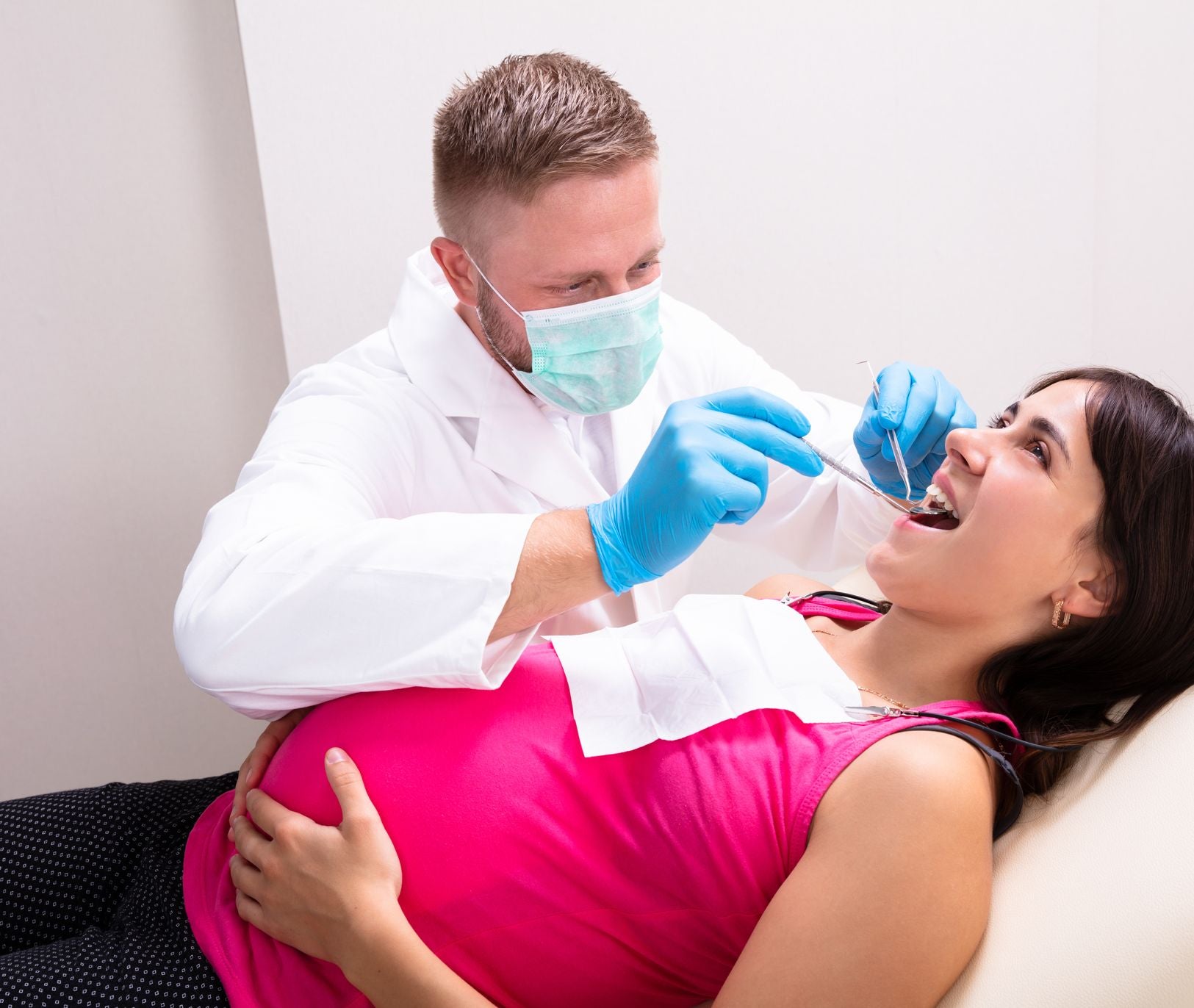
Routine dental care is important for everyone at any age, but it’s particularly crucial for expecting mothers. After all, pregnancy increases the risk of several oral health problems, and developing these problems could adversely affect your baby’s health. If you have a child on the way, follow these dental care tips to promote a healthy pregnancy.
How Pregnancy Affects Dental Health
The changes your body undergoes while pregnant may increase your risk for the following conditions:
- Cavities: Sugar cravings and the temptation to skip brushing because you’re tired or nauseous can make you more cavity-prone. The bacteria that cause cavities can then pass to your unborn baby, causing problems for the child’s teeth later in life.
- Gingivitis and gum disease: Hormonal changes increase the risk of “pregnancy gingivitis,” which affects 60 to 75 percent of pregnant women. Red, swollen, tender gums can develop into more serious gum disease, infections, and tooth loss if left untreated.
- Eroded tooth enamel: Increased vomiting from morning sickness may expose your teeth to excessive stomach acid. This can eat away at the outer layer of your teeth known as enamel, leading to tooth sensitivity, discoloration, and chipping.
- Loose teeth: Rising hormone levels can cause your teeth to loosen temporarily.
- Pyogenic granuloma (pregnancy tumors): Too much plaque can cause tender lumps to form on your gums. These aren’t cancerous, but they cause discomfort and bleed easily. Proper dental care during pregnancy can prevent pyogenic granuloma.
How to Prevent Dental Problems During Pregnancy
Keep your teeth and gums healthy throughout your pregnancy with these tips:
- Brush and floss: Brush for two minutes at least twice a day with a soft-bristled toothbrush and fluoride toothpaste. Then, floss once a day to remove plaque from between the teeth.
- Use mouth rinse and antacids: If brushing makes you feel nauseous, a temporary alternative is to rinse your mouth with a solution of one teaspoon baking soda and one cup water. You can further reduce acidity in your mouth by taking antacids. Just be sure to speak with your doctor first.
- Eat a healthy diet: Limiting sweets reduces your cavity risk. Then, eating more fruits and vegetables, lean meats, whole grains, and low-fat dairy products provides you and your baby with nutrients that promote strong teeth and healthy gums.
- Visit the dentist: Don’t skip your routine appointment because you’re pregnant. Exams are more important than ever right now! During the visit, tell your dentist about your pregnancy, any medications you’re taking, and whether your pregnancy is high-risk. Also, disclose any changes you notice with your teeth and gums.
- Get dental X-rays if needed: Rest assured that dental X-rays can be performed safely during pregnancy. The technician takes special care to safeguard you and your baby by shielding your abdomen and thyroid.
Dental checkups before and during pregnancy are essential to find and treat problems early. To schedule your next appointment, please contact Park 56 Dental in NYC by calling (212) 826-2322.
-
How to Buy the Right Toothbrush
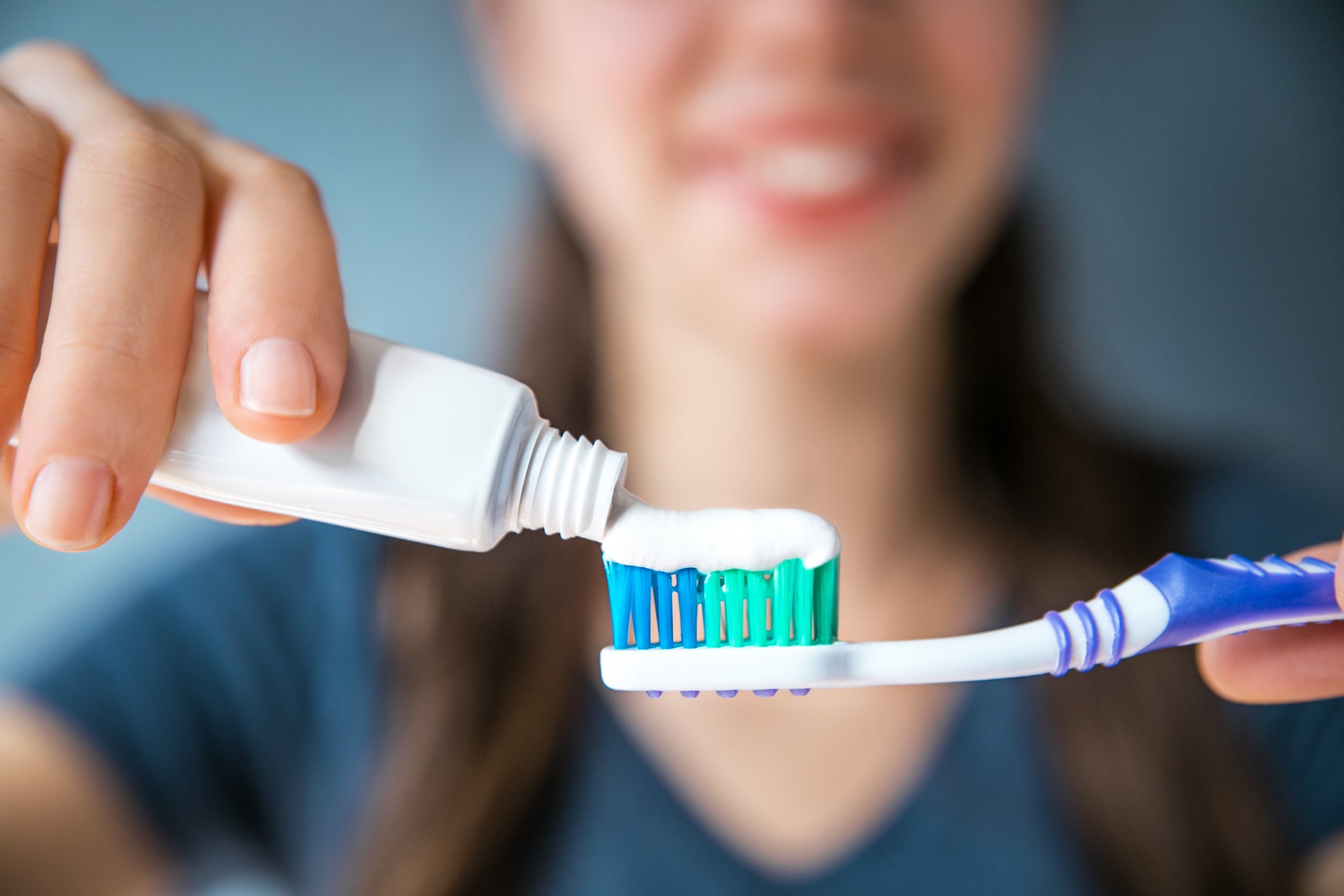
Do you feel overwhelmed every time you walk down the toothbrush aisle? Perhaps you have resorted to reaching for whatever’s on sale, buying a toothbrush because it’s your favorite color, or closing your eyes and choosing one at random. For the best results, you should make your selection more strategically. Brush up on how to buy the right toothbrush for your needs.
- Look for soft bristles: Check the packaging on different toothbrushes, and you’ll notice “soft,” “medium,” or “hard” on the label. Most people benefit from soft bristles, which clean your teeth effectively without damaging the enamel or irritating your gums. Just be careful to brush gently, even when using a soft-bristled brush, to avoid tooth sensitivity and receding gums.
- Find a small-headed toothbrush: The benefit of a small head is that the bristles can more easily reach behind your back molars. To make sure you scrub every hard-to-reach surface, avoid opening your mouth too far while brushing, which tends to push your toothbrush forward.
- Avoid cheap, no-name toothbrushes: Chances are those dollar-store toothbrushes are not approved by the American Dental Association. They may be made of inferior or even unsafe products, so leave them on the shelf.
- Choose a comfortable handle style: The toothbrush should fit comfortably in your hand. To achieve this, you may want one with a contoured handle or a flexible head that bends to reach every tooth with less effort on your part. These qualities come down to personal preference, so you may need to try a few styles to find what you like best.
- Consider an electric toothbrush: If you have trouble brushing for as long or as thoroughly as you should, an electric toothbrush could be a good investment. Studies show that electric toothbrushes remove more plaque than manual ones. The automatic bristle movement is especially beneficial for people with braces or limited wrist mobility.
- Shop wisely for your children: Babies and toddlers need the right toothbrush, too. Find one with a miniature head designed to fit their tiny mouths. While you’re at it, let your child select a toothbrush in a fun color or with a popular cartoon character that will encourage them to brush twice a day. Also, remember to use just a smear of kids’ toothpaste for safety in case they swallow rather than spit.
- Know when to replace your toothbrush: Eventually, your toothbrush will wear out, and you’ll need to shop for a new one again. Replace it every three months or when the bristles begin to look worn and frayed, whichever comes first. You should also replace your toothbrush after recovering from an illness to help prevent re-infection.
Brushing (and flossing!) every day is an effective way to maintain good oral health. However, it’s also important to visit the dentist every six months. Routine cleanings remove plaque and tartar to keep cavities and gum disease at bay. Schedule your next appointment at Park 56 Dental by calling (212) 826-2322 today.
RECENT POSTS
categories
- Uncategorized
- Cosmetic Dentistry
- Veneers
- Healthier Teeth
- Teeth Whitening
- Dental Health
- Video
- Dental Emergencies
- Invisalign
- Dental Implants
- Root Canal
- Sedation Dentistry
- Infographic
- Dental Crowns and Bridges
- Dental Anxiety
- Gum Disease
- COVID-19
- Bad Breath
- New York Dentist
- Cut out sugar
- General Dentistry
- Oral Health
- Oral Cancer
- Dry Mouth
- Gum Health
- Toothache
- Dental Sealants
- Cavities



